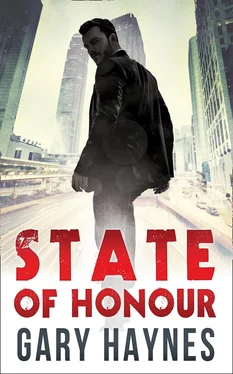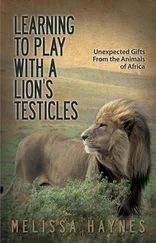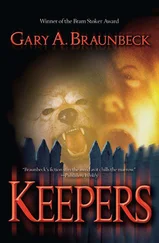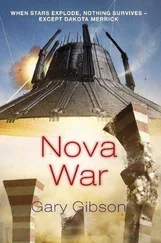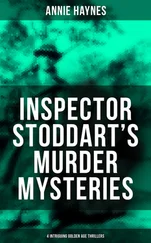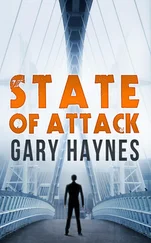“They could move her any time. They could kill her any time. You want that on your conscience? Besides, JSOC know what they’re doing, so why don’t you ease up on the lieutenant here?” Tom said, feeling that Crane was being overly obstructive.
Truth was, the CIA’s ultra-secretive Special Activities Division, the most elite section of which was the Special Operations Group, had worked in tandem with Delta since their inception in the late 1970s, and regularly recruited operatives from the squadrons. But it was obvious that the CIA had the upper hand, and Tom had heard rumours that Crane headed the Special Operations Group, or had done.
Crane seemed to relax. “Sure. What the hell do I know anyways?” he said, although not without a hint of sarcasm.
“We’ve successfully carried out eight similar hostage recues over here,” Sawyer said, still apparently unfazed. “That’s why POTUS wants to go for it. But if the NSC judge it’s totally off the wall, they’ll say so. I know there’s only a twenty per cent chance of success, but we’re ready and able to give it our best shot. If we don’t try it, we’re likely to be too late. Now I’m no politician, that’s for certain, but why wouldn’t they have made a demand already, if they wanted something?”
“Why wouldn’t they have killed her already, if they wanted her dead?” Crane replied.
Tom thought that that was sound reasoning, although it made him shudder to think it could end that way. But you could bat this one back and forth for days, and you’d still be left with the same dilemma. He guessed that was why those who had to make such decisions would go for it. The alternative was inertia. And if the secretary died while they were procrastinating, well, that could be political suicide. Besides, although it wasn’t a perfect plan, no plan was, especially with what they had to work with. But it was unlikely to be any different in a week’s time, and with the passage of time came an increased likelihood of a leak.
“Are we done?” Sawyer asked.
“Yeah. Run it past Houseman,” Crane said.
Sawyer headed for the door, a laptop and a bundle of photos under his arm. Tom saw Crane glance at him, although he looked preoccupied.
“I’ll see what I can do, Tom. Just stick around for now.”
Tom hadn’t wanted to push his luck, thinking that if he kept in the background Crane might be able to get him to go along on the mission. He got a cup of coffee from a vending machine in the lobby, and sat on a pleather chair. He thought about those who’d died already, and those young men who might lose their lives in the next few hours. He just hoped that their sacrifices would lead to a worthy outcome.
He sensed someone behind him and twisted around. It was Steve Coombs, holding the extended handle of a small suitcase on wheels.
“The hell you doing here?” Tom asked.
“Benazir Bhutto got a bomb threat. It’s closed till further notice,” Steve said, referring to Islamabad’s international airport, named after the assassinated female politician. “I’m flying home from Kabul. The CIA said they had a couple more questions; asked me to come in on my way to the airport.”
Placing the cup on the floor, Tom stood up. “Good to see you, Steve, anyhow.”
They shook hands.
“And you, Tom?”
“I’m staying put for now.”
“How’s that?”
Tom shook his head. “Don’t worry about it. You get home safely, you hear. And give Page my love.”
Tom hadn’t seen Steve’s wife in maybe two years, but he admired the woman, and he knew that his friend was devoted to her. Steve was a lucky man in many respects, he thought. His parents farmed three-hundred acres in Eastern Pennsylvania spit into cattle and soybeans. He had six siblings, all of whom were married and doing well. Steve had told him that growing up on a farm was like he imagined heaven to be.
As they parted company Tom thought his own early life couldn’t have been more dissimilar. Up until he was eight, he saw his father about once every three months, if he was lucky. He gave him a toy or twenty bucks. He looked handsome in his Army officer’s uniform. He was six-two with a natural muscularity, his black-onyx-coloured eyes and hair marking him out like a movie actor. He’d never married his mother, and Tom didn’t have his name, Dupree being her surname. His father was uneasy around him, avoiding physical contact, and there would be long silences between them. He was Louisiana Creole, his forefathers being colonial French who’d settled in the southern states. Tom excelled at French at school; did it, he supposed, to make his father proud in some remote way.
He clenched his jaw muscles now and tried to focus on something positive.
“Tom.”
It was Crane’s voice. Tom looked over towards the row of elevators and saw him walking across the tiled floor, his big legs striding out, his confidence restored. Tom stood up.
“It’s a goer. You ready for this?” Crane said, excitedly.
“Hell, yeah” he replied, thinking Crane’s mood had turned a full one-eighty.
“We don’t land until the Rangers have secured the site. You realize that, right?”
“How did you pull it off?”
“Apart from Houseman being sympathetic, which, I have to say, ain’t his natural disposition, I told him that you were the only man suitable to go along who she’d feel instantly comfortable with.”
“Thanks, Crane.”
“You know how to use an MP5?”
Tom nodded.
“I’ll make sure you have one.”
“You getting paid to keep me alive?” Tom asked.
Crane grinned. “If I was intent on keeping you alive, I woulda made sure you went home on that plane.”
The capital lay in a narrow valley of the Hindu Kush on the banks of Kabul River. The convoy of adapted Land Cruisers moved at speed, Tom sitting in the second vehicle beside Crane. Both men wore fatigues and body armour, their Heckler & Koch MP5 9mm sub-machine guns upright between their legs. They were fixed with suppressors. Crane had explained that all of the assaulters’ weapons were suppressed, so if they heard a round go off from a firearm that wasn’t, it meant it was from a hostile source.
The distance to Kabul International Airport was ten miles, the North Side Cantonment of which housed the command centre for the Afghan Air Force. They would utilize the seven helipads there for the mission, although the Afghans had been told an elaborate lie. Crane had told Tom that if they knew what they were up to, they would’ve all been arrested. Bagram Air Base, which had been used as a staging point for Special Forces’ missions along the northern Af-Pak border, was so depleted that it could no longer be used safely.
Kabul International was connected to the capital by a four-lane highway, shared with domestic traffic. As Tom stared out he saw the heat haze rising above it, the tarmac melting from the hours of intense sunlight.
“You wouldn’t believe this was Afghanistan, would ya?” Crane said, smiling.
“No. It’s changed a lot since I was here last.”
“Don’t get me wrong—you get outside the ring of concrete and steel and it’s still a Third World hellhole as bad as any I’ve seen.”
“You think we were right coming here?” Tom asked.
“It was a hornets’ nest. But staying as long as we did, hell, no. They sit down and talk, but you can’t tame these people. They’re tough, goddamn it. Toughest people I’ve ever met.”
“Nothing tough about IEDs,” Tom said.
“A necessity. They couldn’t fight a hundred thousand well-armed troops face-to-face.”
“So that’s all gonna be forgotten about now, huh?”
“Look, I do my job. Damn good at it, too. You know why?” Crane said, rhetorically. “Cuz I don’t hold grudges. That gives you ulcers. I got enough bad habits as it is.”
Читать дальше
